Filter by
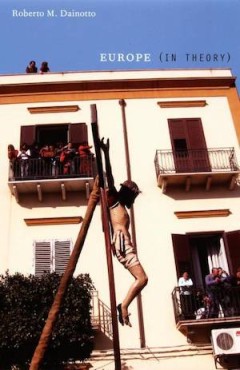
Europe (in theory)
Europe (in Theory) is an innovative analysis of eighteenth- and nineteenth-century ideas about Europe that continue to inform thinking about culture, politics, and identity today. Drawing on insights from subaltern and postcolonial studies, Roberto M. Dainotto deconstructs imperialism not from the so-called periphery but from within Europe itself. He proposes a genealogy of Eurocentrism that ac…
- Edition
- -
- ISBN/ISSN
- 9781478091417
- Collation
- 288 halaman
- Series Title
- -
- Call Number
- 800 DAI e
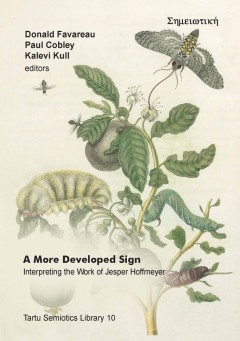
A More Developed Sign : Interpreting The Work of Jesper Hoffmeyer
For more than 40 years, Jesper Hoffmeyer has been committed to the idea of developing “a semiotics of nature, or biosemiotics as he chose to call this effort, that could intelligibly explain how all the phenomena of inherent meaning and signification in living nature – from the lowest level of sign processes in unicellular organisms to the cognitive and social behavior of animals – can em…
- Edition
- -
- ISBN/ISSN
- 9789949199457
- Collation
- 334 halaman
- Series Title
- -
- Call Number
- 800 FAV m
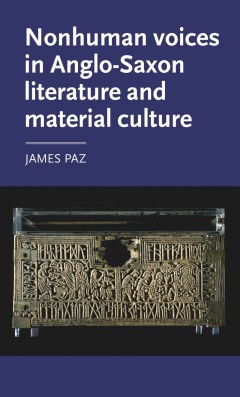
Nonhuman voices in Anglo-Saxon literature and material culture
"Anglo-Saxon ‘things’ could talk. Nonhuman voices leap out from the Exeter Book Riddles, telling us how they were made or how they behave. The Franks Casket is a box of bone that alludes to its former fate as a whale that swam aground onto the shingle, and the Ruthwell monument is a stone column that speaks as if it were living wood, or a wounded body. In this book, James Paz uncovers the v…
- Edition
- -
- ISBN/ISSN
- 9781526115997
- Collation
- 248 halaman
- Series Title
- -
- Call Number
- 800 PAZ n

Letters of Blood and Other Works in English
This collection brings together for the first time select works in English by the major Swedish modernist poet and critic Göran Printz-Påhlson. It was Printz-Påhlson who introduced poetic modernism to Scandinavia, and his essays and poems delve deeply into English, American, and continental modernist traditions.
- Edition
- -
- ISBN/ISSN
- 9781906924584
- Collation
- -
- Series Title
- -
- Call Number
- 400 PRI l
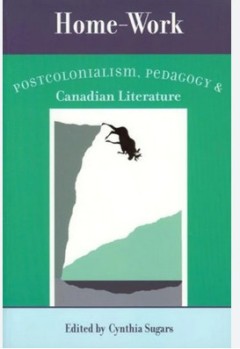
Home-Work : Postcolonialism, Pedagogy, and Canadian Literature
Canadian literature, and specifically the teaching of Canadian literature, has emerged from a colonial duty to a nationalist enterprise and into the current territory of postcolonialism. From practical discussions related to specific texts, to more theoretical discussions about pedagogical practice regarding issues of nationalism and identity, Home-Work constitutes a major investigation and rea…
- Edition
- -
- ISBN/ISSN
- 9780776605777
- Collation
- 545 halaman
- Series Title
- Reappraisals: Canadian Writers
- Call Number
- 800 HOM
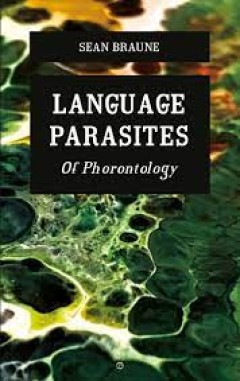
Language Parasites : of Phorontology
Who speaks when you speak? Who writes when you write? Is it “you”—is it the “I” that you think you are? Or are we the chance inheritors of an invasive, exterior parasite—a parasite that calls itself “Being” or “Language?” If our sense of self is best defined on the basis of an exterior, parasitical force that enters us from the outside, then the “self” is no longer a cen…
- Edition
- -
- ISBN/ISSN
- 9780998531861
- Collation
- 136 halaman
- Series Title
- -
- Call Number
- 400 BRA l

Lenin Reloaded : Toward a Politics of Truth, sic 7
Lenin Reloaded is a rallying call by some of the world’s leading Marxist intellectuals for renewed attention to the significance of Vladimir Lenin. The volume’s editors explain that it was Lenin who made Karl Marx’s thought explicitly political, who extended it beyond the confines of Europe, who put it into practice. They contend that a focus on Lenin is urgently needed now, when global c…
- Edition
- -
- ISBN/ISSN
- 9781478091400
- Collation
- -
- Series Title
- -
- Call Number
- 320 LEN

Ghosts - or the (Nearly) Invisible : Spectral Phenomena in Literature and the…
In this volume, ghost stories are studied in the context of their media, their place in history and geography. From prehistory to this day, we have been haunted by our memories, the past itself, by inklings of the future, by events playing outside our lives, and by ourselves. Hence the lure of ghost stories throughout history and presumably prehistory. Science has been a great destroyer of myth…
- Edition
- -
- ISBN/ISSN
- 9783631665664
- Collation
- 170 halaman
- Series Title
- -
- Call Number
- 800 FLE g
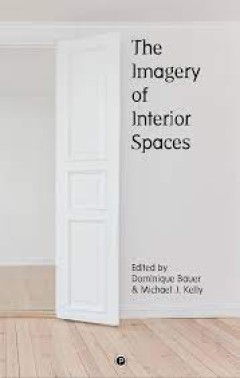
The Imagery of Interior Spaces
On the unstable boundaries between “interior” and “exterior,” “private” and “public,” and always in some way relating to a “beyond,” the imagery of interior space in literature reveals itself as an often disruptive code of subjectivity and of modernity. The wide variety of interior spaces elicited in literature — from the odd room over the womb, secluded parks, and train c…
- Edition
- -
- ISBN/ISSN
- 9781950192199
- Collation
- -
- Series Title
- -
- Call Number
- 800 IMA
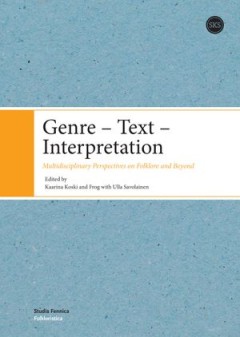
Genre - Text - interpretation : Multidisciplinary Perspectives On Folklore an…
"This book presents current discussions on the concept of genre. It introduces innovative, multidisciplinary approaches to contemporary and historical genres, their roles in cultural discourse, how they change, and their relations to each other. The reader is guided into the discussion surrounding this key concept and its history through a general introduction, followed by eighteen chapters tha…
- Edition
- -
- ISBN/ISSN
- 9789522227386
- Collation
- 482 halaman
- Series Title
- Studia Fennica Folkloristica, 22
- Call Number
- 800 GEN
 Computer Science, Information & General Works
Computer Science, Information & General Works  Philosophy & Psychology
Philosophy & Psychology  Religion
Religion  Social Sciences
Social Sciences  Language
Language  Pure Science
Pure Science  Applied Sciences
Applied Sciences  Art & Recreation
Art & Recreation  Literature
Literature  History & Geography
History & Geography